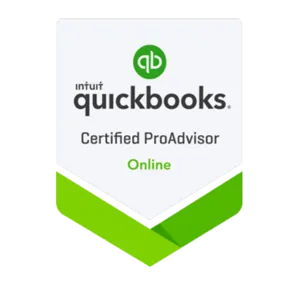OUR BLOG
Your hub for insightful and actionable content to help you unlock the potential of your business.

10 Easy Bookkeeping Tips for Trades Business Owners
As a business owner in a trade-based business, you understand that bookkeeping might not be the most exciting part of your job. However, it's undeniably crucial for the smooth operation and growth of your business. At Competitive Edge Business Solutions, we specialize in assisting trades-based businesses with their bookkeeping, tax, and financial needs. Here's an expanded guide to help you understand the importance of efficient bookkeeping and how you can implement it effectively in your business.
Understanding the Importance of Bookkeeping
Why It Matters: Bookkeeping is more than just a regulatory requirement; it's the financial blueprint of your business. It gives you insight into your cash flow, profitability, and financial health. Accurate bookkeeping helps in making informed decisions, ensures compliance with tax laws, and prepares you for unforeseen financial challenges.
Top 10 Bookkeeping Tips for Your Trades-Based Business
1. Use Job Numbers for Efficient Tracking
What Are Job Numbers? Job numbers are unique identifiers assigned to each project or job you undertake. They help in organizing and tracking the progress, expenses, and revenue of each job individually.
Benefits: Using job numbers simplifies bookkeeping by reducing errors and miscommunication. It also assists in project management, ensuring each job is accounted for financially.
How to Implement: Assign a unique job number as soon as you take on a project. Use this number in all related documents and communications.
Best Practices: Ensure everyone in your team understands and uses these numbers consistently.
2. Creating an Optimized Bookkeeping Process
Automate When Possible: Implement software solutions for invoicing, payroll, and expense tracking. Automation reduces manual errors and saves time.
Outsourcing: If managing bookkeeping in-house is overwhelming, consider outsourcing. Professional bookkeepers can set up and manage your system efficiently.
Choosing Software: Select bookkeeping software that's compatible with the needs of your trade. Look for features like mobile accessibility, integration with other tools, and user-friendliness. We love platforms like Dext, Xero and QBO.
Training and Implementation: Train your team on how to use the software effectively. Regularly update the system to leverage new features and security updates.
3. Outsourcing Invoicing and Accounts Management
Why Outsource? Outsourcing relieves you from the time-consuming process of managing accounts. It allows you to focus on core business activities like client acquisition and service delivery rather than collecting the money. The separation of those two key duties sometimes makes each role easier.
Finding the Right Partner: Choose a service that understands the nuances of trades-based businesses and can offer tailored solutions.
Cost-Effectiveness: Outsourcing can be more cost-effective than hiring an in-house bookkeeper, especially for smaller businesses. For more information check out our blog 5 Questions to Ask Yourself When Considering Moving Your Bookkeeping In-house.
Expertise: It takes skill and nuance to be effective at collecting outstanding accounts. Outsourced teams bring additional levels of expertise and experience that can significantly benefit your business.
4. Staying on Top of Tax Obligations
Regular Tax Planning: Engage in regular tax planning to avoid last-minute rushes. Understand your tax liabilities and plan for them throughout the year.
Working with Tax Professionals: Collaborating with tax professionals, like our experts, can ensure accurate reporting and help you leverage eligible tax deductions.
Quarterly Reviews: Have quarterly tax reviews to estimate tax liabilities and avoid surprises.
Record-Keeping: Keep detailed records of all transactions to simplify the tax filing process.
5. Separating Personal and Business Expenses
Why It's Crucial: Mixing personal and business finances can lead to tax complications and inaccurate financial reporting.
How to Do It: Open separate bank accounts and credit cards for your business. Use business accounts strictly for business transactions.
Budgeting: Create a budget for your business and stick to it. Monitor your expenses regularly to ensure they align with your budget.
Emergency Fund: Set aside funds for unexpected expenses to avoid using business capital for personal emergencies.
6. Monitoring Your Bank Account
Regular Review: Schedule weekly or monthly reviews of your bank statements to stay informed about your financial status.
Understanding Cash Flow: Keep track of the money coming in and going out to manage your cash flow effectively.
Forecasting: Use past financial data to forecast future cash flow. This helps in planning for slow periods and managing expenses.
Managing Debtors: Have clear payment terms with customers and follow up promptly on overdue payments.
7. Keeping In Contact with Customers
Building Relationships: Maintain communication with past customers to encourage repeat business and referrals.
Feedback and Engagement: Use customer feedback to improve services. Engage with them through newsletters, social media, or loyalty programs.
Personalized Communication: Send personalized emails or messages on special occasions or to share updates about your services.
Loyalty Programs: Implement loyalty programs to reward repeat customers and encourage more business.
8. Maintaining Detailed Financial Reports and Statements
Key Reports: Ensure accuracy in your balance sheet, income statement, cash flow statement, and annual report. These documents offer vital insights into your business’s financial health.
Regular Updates: Update these reports regularly to reflect the current financial status of your business. There are many platforms available that will put this information at the tip of your fingers, ask us for our recommendations.
Regular Reconciliation: Reconcile your bank accounts with your bookkeeping records regularly to ensure accuracy.
Professional Review: If you maintain your books yourself or inhouse we recommend that you have a professional review your financial statements periodically for additional insights and corrections.
9. Keeping Detailed Receipts
Importance: Receipts serve as proof of transactions and are essential for accurate bookkeeping and tax purposes.
Organization: Develop a system for organizing receipts, both digital and physical. Consider scanning physical receipts for digital storage with platforms such as Dext.
10. Outsourcing Bookkeeping and Accounts
When to Outsource: If bookkeeping is taking significant time away from your core business activities, it's time to outsource.
Selecting a Service Provider: Choose a provider with experience in the trades sector who can offer customized solutions for your business. Make sure their management style, service delivery and communication methods are a fit with yours.
Research: Do thorough research to find a bookkeeping service that aligns with your business needs.
Effective bookkeeping is essential for the success of any trades-based business. By implementing these tips, you can ensure accurate financial management, compliance with tax laws, and informed decision-making. Remember, you don't have to do it all alone, book today.






